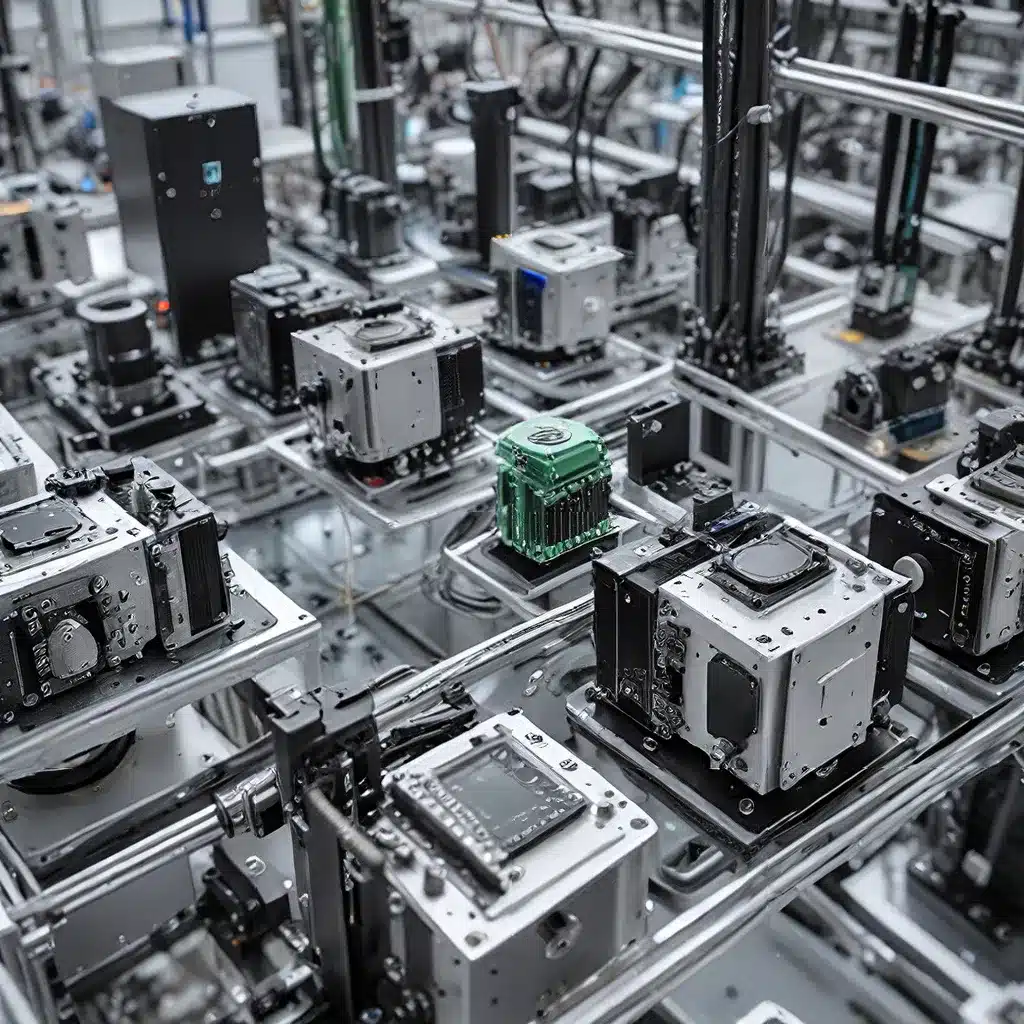
In the rapidly evolving landscape of the Internet of Things (IoT), the design and deployment of sensor networks have become crucial for enabling intelligent, data-driven applications across various industries. One such domain that has seen a significant transformation is smart manufacturing, where IoT-powered sensor networks play a pivotal role in enhancing productivity, efficiency, and quality control.
Challenges in Sensor Network Design for Smart Manufacturing
As the scale and complexity of IoT deployments in smart manufacturing environments continue to grow, sensor network designers face several intricate challenges:
Sensor network scalability: The ability to seamlessly integrate and manage a large number of sensors, often in the order of thousands or even millions, is critical for capturing the vast amounts of data required to drive smart manufacturing processes.
Sensor heterogeneity: Smart manufacturing environments typically involve a diverse range of sensor types, each with unique capabilities, communication protocols, and data formats. Ensuring seamless interoperability and integration of these heterogeneous sensors is a significant engineering hurdle.
Sensor reliability and resilience: In mission-critical smart manufacturing applications, sensor networks must maintain high levels of reliability and resilience to ensure continuous data acquisition and prevent disruptions in the manufacturing workflow.
Sensor calibration and data quality: Accurate sensor calibration is essential for obtaining reliable and high-quality data, which is the foundation for making informed decisions and implementing effective control strategies in smart manufacturing.
Distributed Sensor Calibration Algorithms for IoT Deployments
To address these challenges, researchers and IoT experts have been exploring innovative distributed sensor calibration algorithms that can enhance the scalability, reliability, and resilience of IoT-based sensor networks in smart manufacturing environments.
Decentralized Calibration Approaches
One key approach is the development of decentralized calibration algorithms that can be executed across a network of interconnected sensors, rather than relying on a centralized control unit. This distributed paradigm offers several advantages:
-
Scalability: Decentralized calibration algorithms can scale more efficiently as the number of sensors in the network increases, as they do not require a single point of control or coordination.
-
Resilience: By distributing the calibration tasks across multiple sensors, the system becomes more resilient to individual sensor failures or network disruptions, ensuring continuous operation.
-
Reduced communication overhead: Decentralized algorithms minimize the amount of data that needs to be transmitted to a central server, reducing communication costs and latency.
-
Autonomy and adaptability: Sensors can self-organize and calibrate themselves, adapting to changes in the environment or sensor characteristics without the need for manual intervention.
Sensor Fusion and Machine Learning
Another important aspect of distributed sensor calibration is the integration of sensor fusion techniques and machine learning algorithms. By combining data from multiple sensors, sensor fusion can improve the accuracy and reliability of calibration, even in the presence of sensor failures or environmental disturbances.
Machine learning algorithms, such as Bayesian filtering, Kalman filtering, or neural networks, can be employed to learn the complex relationships between sensor measurements, environmental conditions, and the true physical quantities being measured. This enables the sensor network to adaptively calibrate itself, improving the data quality over time.
Lightweight and Energy-Efficient Implementations
To ensure the feasibility of distributed sensor calibration algorithms in resource-constrained IoT devices, researchers have also focused on developing lightweight and energy-efficient implementations. This involves optimizing the computational complexity and memory footprint of the algorithms, as well as exploring low-power communication protocols and energy harvesting techniques.
By addressing these implementation challenges, distributed sensor calibration algorithms can be seamlessly integrated into IoT-based smart manufacturing systems, enabling scalable, reliable, and resilient data acquisition for improved process control, quality monitoring, and decision-making.
Enhancing IoT Deployments in Smart Manufacturing
The integration of distributed sensor calibration algorithms into IoT-based smart manufacturing systems can provide several key benefits:
Improved data quality: Accurate sensor calibration ensures that the data collected from the sensor network is reliable and representative of the actual physical quantities, enabling more informed decision-making and control strategies.
Reduced maintenance costs: Autonomous and adaptive calibration algorithms minimize the need for manual sensor calibration, reducing maintenance overhead and operational costs.
Enhanced system resilience: The decentralized and fault-tolerant nature of the calibration algorithms improves the overall resilience of the IoT system, ensuring continuous data acquisition and preventing disruptions in the manufacturing workflow.
Scalability for future growth: The scalable design of distributed sensor calibration algorithms allows for seamless integration of additional sensors as the smart manufacturing system expands, accommodating the increasing demands for data-driven insights.
Optimization of manufacturing processes: Reliable and high-quality sensor data, coupled with advanced analytics and control algorithms, enables the optimization of various manufacturing processes, such as production scheduling, quality control, and predictive maintenance.
By embracing these distributed sensor calibration techniques, IoT deployments in smart manufacturing can unlock new levels of efficiency, productivity, and resilience, solidifying the role of sensor networks as a foundational element in the transformation towards Industry 4.0.
Conclusion
The design and deployment of sensor networks in smart manufacturing environments pose significant challenges, including scalability, sensor heterogeneity, reliability, and data quality. Distributed sensor calibration algorithms have emerged as a powerful solution to address these challenges, offering a scalable, resilient, and adaptive approach to sensor network management.
By integrating decentralized calibration techniques, sensor fusion, and machine learning, IoT-based smart manufacturing systems can achieve improved data quality, reduced maintenance costs, and enhanced system resilience. As the IoT landscape continues to evolve, these advancements in sensor network design will play a crucial role in unlocking the full potential of data-driven manufacturing, ultimately driving the transformation towards more efficient, productive, and responsive smart factories.
Sensor-Networks.org is a leading resource for professionals, researchers, and enthusiasts interested in the latest developments in sensor network technologies and their applications in various industries, including smart manufacturing. Visit our website to explore more insights and expert analyses on this transformative field.